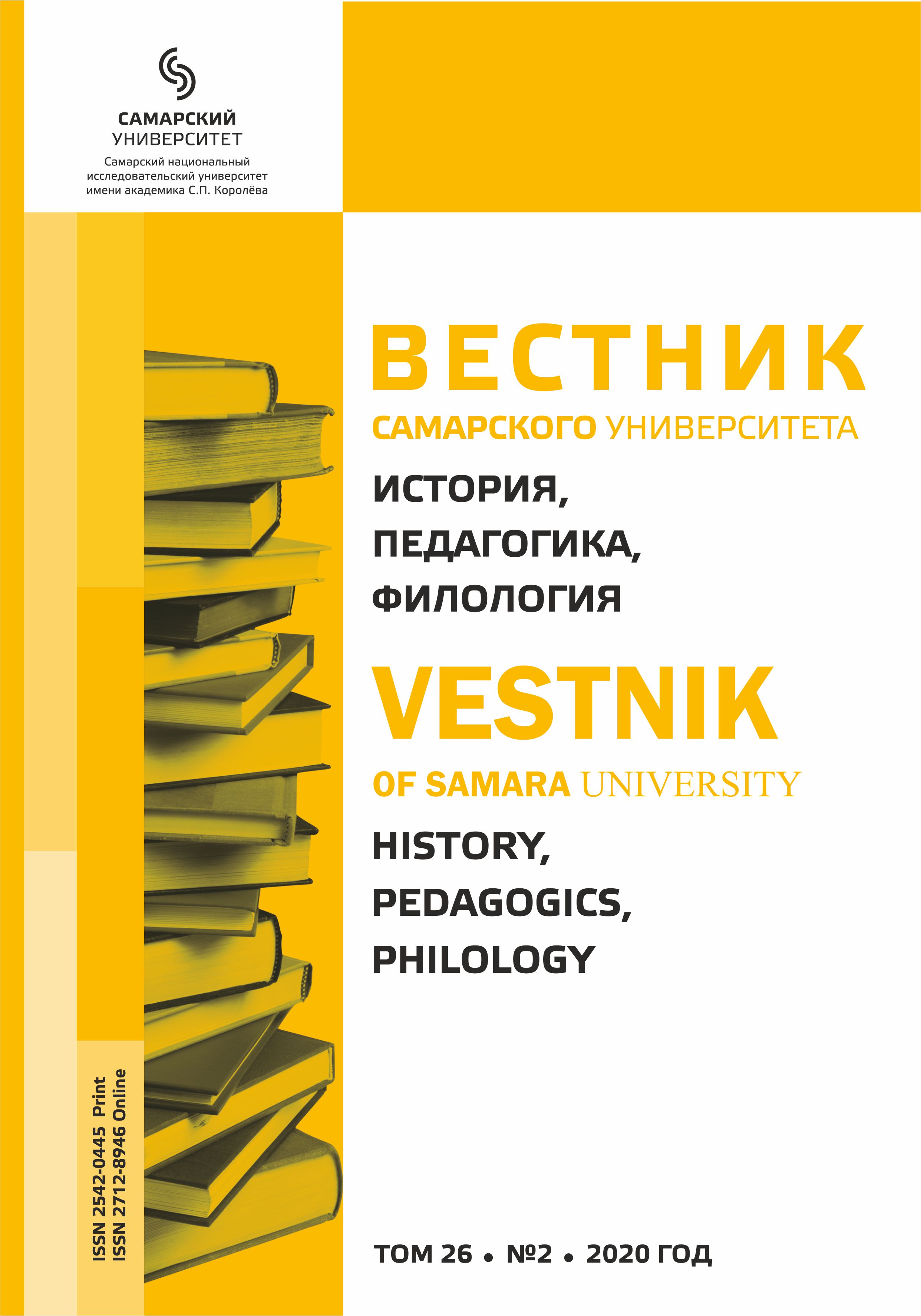Academics’ Training for International Communication and Collaboration
- Authors: Merkulova L.P.1, Kashina E.G.1
-
Affiliations:
- Samara National Research University
- Issue: Vol 26, No 2 (2020)
- Pages: 102-106
- Section: Articles
- URL: https://journals.ssau.ru/hpp/article/view/7879
- DOI: https://doi.org/10.18287/2542-0445-2020-26-2-102-106
- ID: 7879
Cite item
Full Text
Abstract
The article deals with the problem of academics’ acquisition of practical skills in international communication and collaboration. The authors investigate the Russian and overseas experience of academics’ teaching for international pedagogical integration in terms of its possible educational outcomes. The paper proves that academics should be oriented towards the comprehensive assessment of the modern overseas pedagogical approaches and professional development principles and their comparison with the approaches in the Russian Federation. The authors apply modeling, content analysis of the university educational programs, and theoretical overview of the research papers which are related to this article. The authors conclude that interactive learning contributes to academics’ international integration. The results of the paper can be used in the system of higher education to develop academic programs and assessment tools. The research is recommended for the university lecturers and specialists dealing with optimization and adaptation of training content and teaching methodology to labour market needs.
About the authors
L. P. Merkulova
Samara National Research University
Author for correspondence.
Email: morenov@ssau.ru
ORCID iD: 0000-0003-0793-4757
Doctor of Pedagogical Sciences, professor, head of the Department of Foreign Languages and Russian as a Foreign Language
E. G. Kashina
Samara National Research University
Email: morenov@ssau.ru
ORCID iD: 0000-0002-7088-6383
Doctor of Pedagogical Sciences, professor, professor of the Department of English Philology
References
- Robert, Heidi 2019 – Robert R.A. and Heidi L.M. (2019) Discourse strategies that co-construct relational identities in STEM peer tutoring. Communication Education, no. 68 (3), pp. 265–286. doi: 10.1080/03634523.2019.1606433.
- Hermine 2003 – Hermine S. (2003) Learning to talk: from manual work to discourse work as self-regulating practice. Journal of Workplace Learning, vol. 15, issue: 7/8, pp. 332–337. doi: 10.1108/1366562031050481.
- Savignon 2002 – Savignon S.J. (2002) Interpreting communicative language teaching. Context and concerns in teacher education. New Haven & London: Yale University Press, 243 p. Available at: http://bookre.org/reader?file=1082369.
- Abzalova, Nelyubina 2014 – Abzalova S.A. and Nelyubina E.A. (2014) Interactive methods of foreign languages teaching in non-linguistic institute. Bulletin of the Technological University, no. 10, pp. 257–260. Available at: https://cyberleninka.ru/article/n/interaktivnye-metody-obucheniya-inostrannym-yazykam-v-neyazykovom-vuze. (In Russ.)
- Agureeva 2018 – Agureeva A.V. (2018) Interactive learning for guide-interpreters’ training. Izvestiya of the Samara Russian Academy of Sciences scientific center. Social, humanitarian, medicobiological sciences, no. 2 (59), pp. 19–24. Available at: https://cyberleninka.ru/article/n/podgotovka-gidov-perevodchikov-sredstvami-interaktivnogo-obucheniya. (In Russ.)
- Zimnyaya 2004 – Zimnyaya I.A. (2004) Key competences – new educational paradigm. Higher Education Today, no. 3, pp. 34–42. Available at: https://cyberleninka.ru/article/n/klyuchevye-kompetentsii-novaya-paradigma-rezultata-obrazovaniya. (In Russ.)
- Levchenko, Kashina 2012 – Levchenko V.V. and Kashina E.G. (2012) The criteria of selection of the content of teaching of foreign languages to the students in the university on the basis of integration. Vestnik of Samara State University, no. 5 (96), pp. 48–50. Available at: https://journals.ssau.ru/index.php/hpp/article/view/3218. (In Russ.)
- Merkulova, Pridanova 2016 – Merkulova L.P. and Pridanova M.V. (2016) Conceptual logic of intercultural integration. International Research Journal, no. 4-3 (46), pp. 90–94. doi: 10.18454/IRJ.2016.46.015. (In Russ.)
- Khromenkov 2006 – Khromenkov P.A. (2006) International integration in teaching of higher education system: state and prospects. Science and school, no. 6, pp. 15–18. Available at: https://cyberleninka.ru/article/n/mezhnauchnaya-integratsiya-v-pedagogike-vysshey-shkoly-sostoyanie-i-perspektivy. (In Russ.)
- Khisamutdinova 2017 – Khisamutdinova N.V. (2017) Cross-disciplinary integration as a factor of improving the effectiveness of teaching foreign languages in non-linguistic higher school. ASR: Pedagogy and Psychology, no. 2 (19), pp. 180–183. Available at: https://cyberleninka.ru/article/n/mezhpredmetnaya-integratsiya-kak-sredstvo-povysheniya-effektivnosti-prepodavaniya-inostrannogo-yazyka-v-nelingvis-ticheskom-vuze. (In Russ.)
Supplementary files













